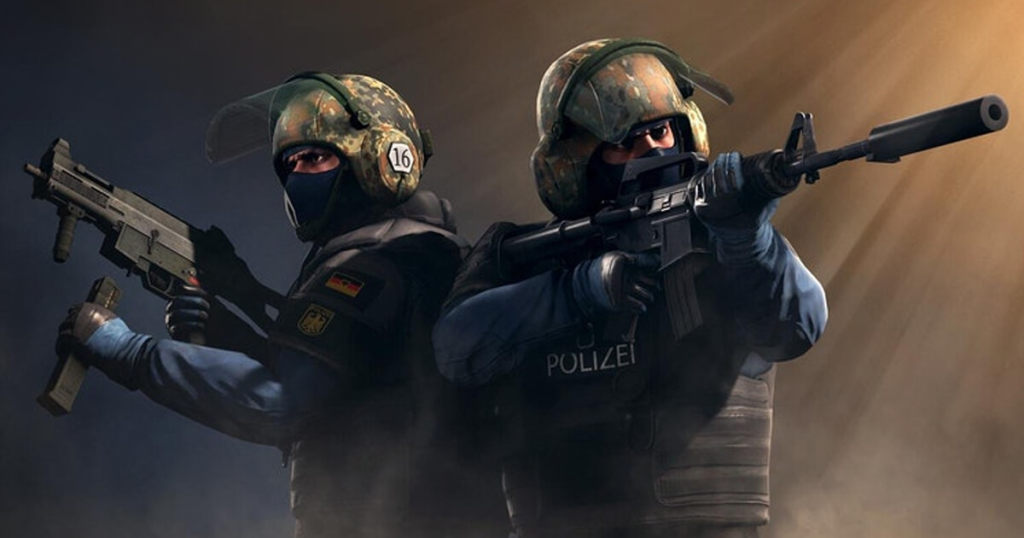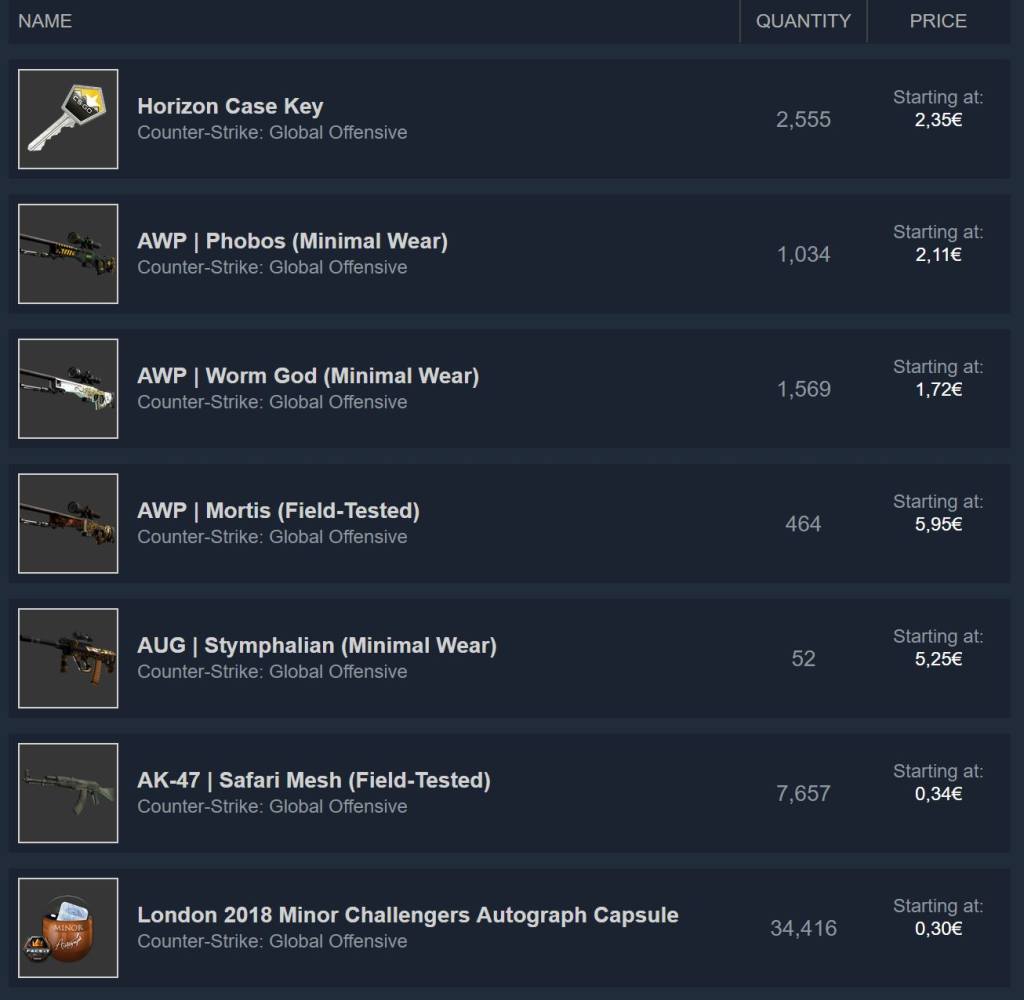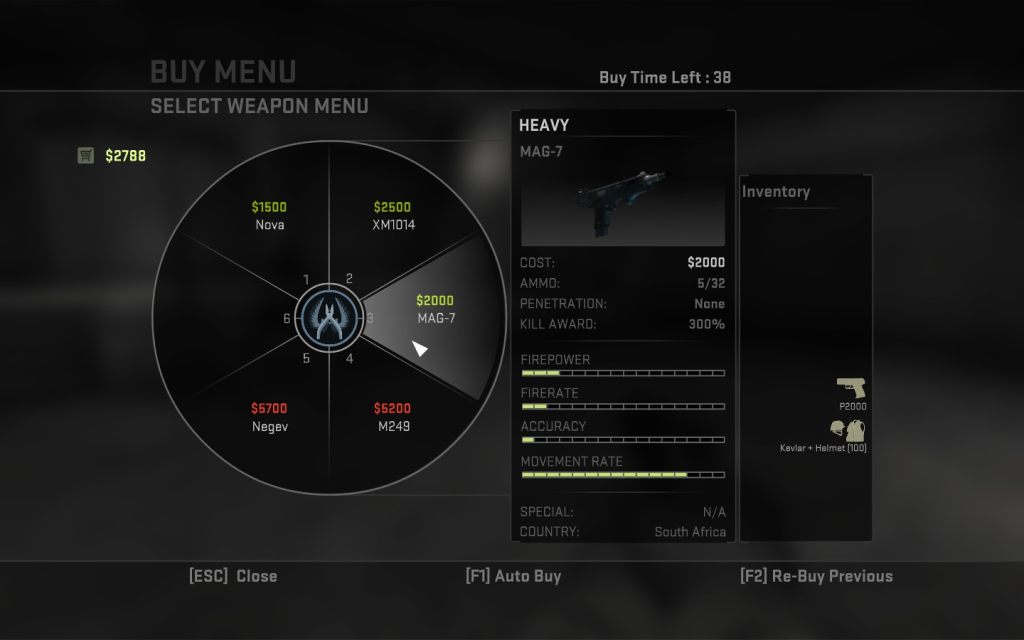
Of all the games I’ve played ever since I started gaming, Counter-Strike is the one I’ve played the most. I discovered the game when it was at version 1.3 and played it all the way through to version 1.6, its final major software update before it morphed into Counter-Strike: Source. Even today, seventeen years after the release of v1.3, I dare to sneak in a game of Counter-Strike: Global Offensive (CS: GO, the new rendition of Counter-Strike), only to ruthlessly get pwned by all the pros that now play the game.
Here at DGaming, we write and think a lot about how blockchain technology could positively impact gaming. As such, we thought it would be a worthwhile idea to think about how blockchain technology could positively impact Counter-Strike. The key here is that we want it to positively impact the game. After all, blockchain isn’t some panacea that will solve all the world’s problems immediately. There are areas that work better for gaming than others, and I’ll try to present a balanced view.
Let me start by saying that this is a thought experiment. None of this will be easy to implement, nor do I believe that Valve (Counter-Strike’s developer) will remotely consider implementing these suggestions. After all, CS made Valve $414 million in 2018. Never change a winning formula, right? Instead, this article intends to show you what blockchain technology can do through a specific and well-known example.
Buying Skins
Let’s begin with what seems like the most obvious and immediately applicable area for blockchain in CS: alternative weapon outfit, commonly called “skins”. Steam is the digital distribution platform that you play CS from, and it has a market where players can buy skins for their weapons with real money. This is how Valve earns most of its revenue and why it can make the game free to play.

You buy these skins with the money you deposit in your Steam Wallet. You can deposit a maximum of $2,000 in your Steam Wallet, probably because otherwise Steam could quite reasonably be considered a bank. Valve also allows third-party services to hook up with players’ Steam accounts, so they can trade outside of the Steam market. This is why a company like OPSkins is both legal and highly profitable.
Introducing blockchain to this area of the game would mean that the items that players buy are fully theirs. Currently, this isn’t the case. Despite the money that gamers spend on skins, you rent the skins from Valve. You don’t own them. Here’s what that reads like in their Subscriber Agreement.
“You understand and acknowledge that Valve may decide to cease operation of any Subscription Marketplace, change the fees that it charges or change the terms or features of the Steam Subscription Marketplace. Valve shall have no liability to you because of any inability to trade Subscriptions in the Steam Trading Marketplace, including because of discontinuation or changes in the terms, features or eligibility requirements of any Subscription Marketplace.
You also understand and acknowledge that Subscriptions traded, sold or purchased in any Subscription Marketplace are license rights, that you have no ownership interest in such Subscriptions, and that Valve does not recognize any transfers of Subscriptions (including transfers by operation of law) that are made outside of Steam.”
With items on the blockchain, Valve could make no such claims, because the player would legally own those assets and Valve nor any other entity could lay claim to them after the purchase. Valve and the person who created the skin would still receive their money, but the player would now actually receive the item, instead of simply receiving the right to use it. We believe this is a fairer exchange of value than what players are offered today.
Choosing Skins
Buying skins on the Steam market or on a third-party website isn’t the only way you can buy skins. When you complete certain missions or when you achieve certain milestones in CS, a loot box will drop. You can open the loot box for a certain amount of money, by buying a key, and inside the loot box you’ll find a number of skins, as developed either by Valve, one of their partners, or a member of the community.

Currently, Valve decides which skins it wants in those loot boxes. And in the beginning phase of a game, we believe it’s good that a game developer retains a certain amount of control in these decisions while the userbase grows. But CS has millions of players that play tens of thousands of matches every day. This provides an opportunity to give the community the power to decide which skins it wants to see in those loot boxes. And that can be done fairly and transparently on a blockchain.
Here’s how I envision this to work practically: because of its huge userbase, players are almost constantly being given loot boxes. Every time before a player is rewarded with a loot box, they need to make a choice between a few skins that they like; skins that have been submitted to a database after they passed certain objective quality guidelines. The skins that the players prefer will receive more votes and the skins with the most votes will go into the next loot box.
Of course, the algorithm will have to be a lot more complex than that, but that’s the gist of the idea. This way, instead of Valve deciding which skin will go into a loot box, the community will make that decision. We believe this is fairer both for the people developing the skins and for the players.
In-Game Currency
This one is a bit more out there, but I find it the most exciting idea of how blockchain technology could be used in CS. Currently, when you play CS, you receive a certain amount of fictional dollars at the start of each round. This money goes up or down depending on how well you play, and it influences which weapons you can buy.

Imagine that these fictional dollars are tied to a cryptocurrency that has real value. After each round, you can decide to convert those dollars into the in-game cryptocurrency or keep them to buy weapons and possibly earn even more crypto. This would add an interesting layer of complexity to the game that would alter how people play. Think about the new dilemmas it would create: do I spend money on the expensive sniper or do I go for a less expensive weapon? I might play better with the sniper, but it’ll cost me more too.
Suddenly, every player would have the opportunity to earn money gaming. And it needn’t just be tied to the amount of money you have left at the end of the round. It could be tied to your kill/death ratio, to your position on the leaderboard, if you defuse a bomb, if you rescue hostages, etc… Of course, this shouldn’t be an obligatory part of the game, but something that gamers can opt in to.
Game Mechanics
Counter-Strike has always suffered from cheaters. And it’s not just casual gamers who cheat. Recently, a pro gamer was caught cheating during an esports tournament. This damages everything about the game and creates a skepticism towards players who are genuinely good.
If Counter-Strike’s game mechanics would be placed on the blockchain, it would be so much harder for people to cheat. Mind you, this is by far the most difficult to accomplish of all the ideas in this article. There’s a reason DGames (decentralized games, or games running on a blockchain) are mostly card collectible games or turn-based games. There are significantly fewer transactions that need to be verified in these kinds of games compared to a first-person shooter.
You’d need either a workaround or a significantly faster blockchain consensus algorithm to verify all the transactions in a game such as Counter-Strike. And with transactions, I actually mean actions. Moving a step forward would need to be verified as to whether it conforms with the game mechanics. The flight path of a bullet. Whether an enemy is hit. How much health it subtracts. They’re all calculations that can be done on the blockchain, but you’d need to a very fast one.
This being said, if game mechanics are on the blockchain, cheating would become a thing of the past. Every action would be verified on the blockchain. Anything that’s not compliant with the game mechanics as encoded into smart contracts on the blockchain would be rejected.
If developers can find a way to make this work technically, then players needn’t even notice this is happening. The game could play exactly as it always does, except that you cannot cheat. We believe this would make the game significantly better than it is today.
In Conclusion
I hope this has given you a taste of what Counter-Strike could be like if some of it would run on a blockchain. Of course, these are just ideas. They have flaws and would require considerably more thought if they were ever to be implemented, particularly for such a meticulously balanced game as Counter-Strike. But it is possible. Counter-Strike has seen countless iterations that have changed the game in sometimes quite drastic ways. Perhaps a move towards blockchain technology could be implemented in the next iteration of Counter-Strike.




![[JBB.ONE신게임 특집 탐방 보도] 가득 불타는 턴제RPG <Crypto Sword & Magic> ---월간 활동 게이머가 70만 명을 넘은 게임이 블록체인에 왔다!](https://www.jbb.one/f/dynamic/img/3853014baf0b4cb2938f82aefdbc0cba.jpg!sss)


![[JBB.ONE 신게임 보도]< Cipher Cascade> 관련된 더 많은 내용을 가져 드리겠습니다!](https://www.jbb.one/f/dynamic/img/d65e572cec2446dcb2ace1a104abc991.jpg!sss)
